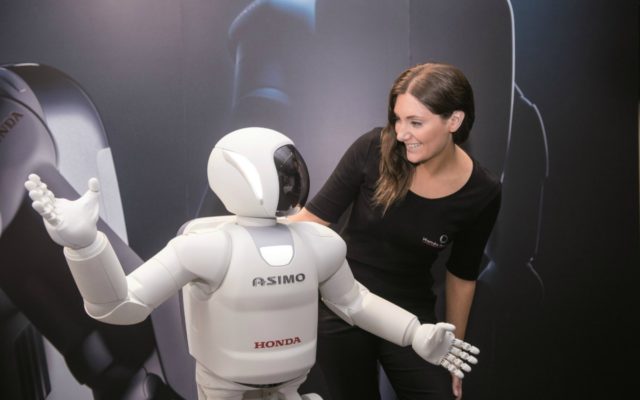There’s been no shortage of headlines and articles in recent months proclaiming that the robots are coming. Not to mention a slew of surveys predicting how many of us will be automated and replaced by a machine in our jobs.
Meanwhile, popular culture has served up plenty of material to further fuel our fears from television series such as Humans and Westworld, where the most realistic of humanoids display consciousness and real feelings, while in the movie Ex Machina a single female robot ultimately outsmarts the highly intelligent men around her.
Although rooted in science fact, up until recently such notions still bordered on the side of fantasy with many of us unwilling to believe the robots will truly inherit the workplace. Last week, one of the most leading edge organisations in the UK though made a significant move that suggests a robotic future is closer than many of us think.
Consultancy giant PwC announced the appointment of its first UK artificial intelligence (AI) leader: Euan Cameron who will be responsible for driving growth around this emerging technology. His core team comprises more than 30 AI, robotic process automation (RPA) and machine learning specialists that are already in place at PwC across the UK. There are plans to grow the team to 200 by 2020.
This year, the firm expects to see an increasing number of AI initiatives move from theory to practice and is exploring ways of deploying the technology internally as well as to help clients with business-critical issues.
Rialto puts considerable time and effort into convincing clients of the pressing importance of digital transformation so we welcome the news that one of the Big Four firms is demonstrating great leadership in this area. It is even more pleasing to hear that its AI leader isn’t a geek who conforms to the stereotype of being daylight-starved!
Cameron has been a partner since 2007 and has more than 20 years’ consulting experience, focusing on the development of corporate strategy and top line growth, informed by data and analytics. He also believes that to be successful, AI needs to be implemented as part of a broader business transformation strategy and wants to help clients understand the value of AI and the opportunities it holds.
Research conducted by PwC, earlier this year revealed that nearly half of UK CEOs were failing to address the impact of AI or automation on their organisations. These and other technologies are already disrupting how we live and work so leaders must be prepared to embrace and confront them head-on.
To fear “smart automation” or attempt to ignore it is to run the risk of being replaced or superseded. Welcome it, explore how to unlock its value and embed it into your digital strategy and a wealth of opportunities will open up.
Article by channel:
Everything you need to know about Digital Transformation
The best articles, news and events direct to your inbox
Read more articles tagged: Featured, Future of Work







